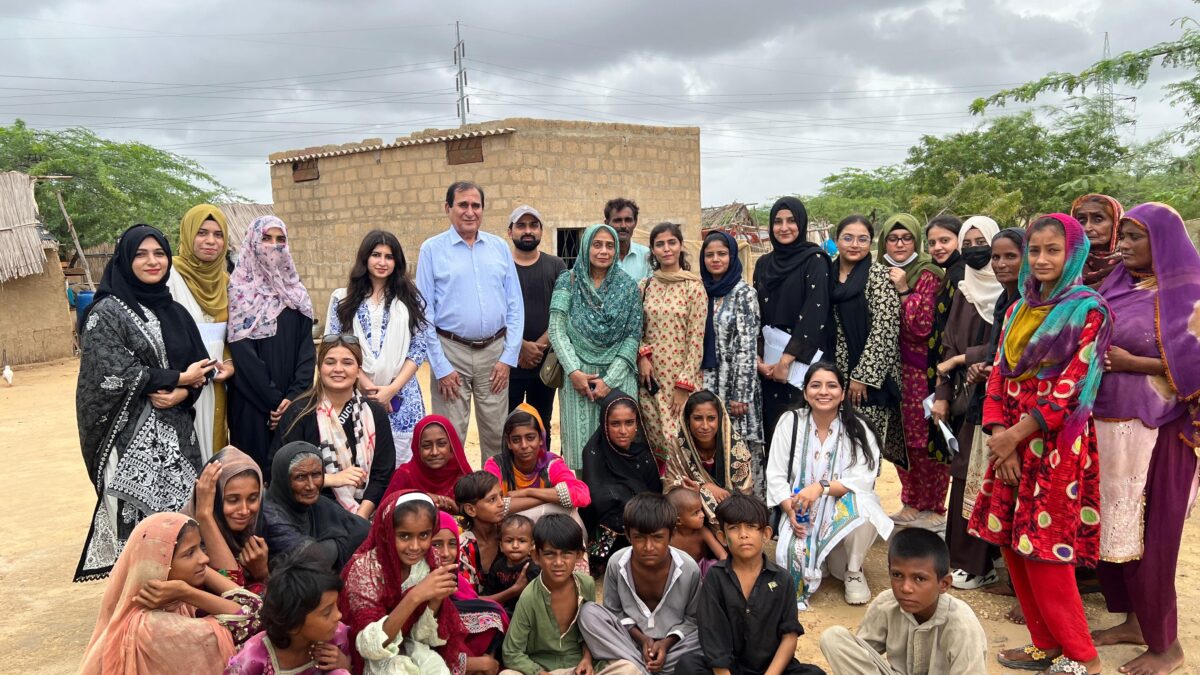Empowering Coastal Zone Women in Sindh Province, Pakistan.
Empowering Coastal Zone Women in Sindh Province, Pakistan.
DBC and the Women’s Studies Department of Karachi University joined their hands together and organized a one-day collaborative and participatory research trip to the coastal town of Bhanbhore on 7th August, 2024.
In the village of Muhammad Hashim Mirbahar, our team conducted mixed-methods research across over 200 households, aiming to enhance and improve role of women in the value chain of different socio-economic activities in which women are either engaged or have the potential to be engaged in. Our focus was on introducing innovative and sustainable methods of diversified income generation, thereby reducing women and local communities’ reliance on narrowly-focussed, low-paid, traditional and climate-vulnerable sources of income.
Accompanied by DBC green community leaders in Bhanbhore, we connected with the local community, gaining invaluable insights into their needs and aspirations. We explored potential eco-friendly and sustainable practices to seamlessly integrate into these rural regions, ensuring long-term ecological balance and economic stability. Our interactions with local fishermen, farmers, and craftsmen provided a deeper understanding of their challenges and opportunities. We aimed to hold open discussions and come with pragmatic and locally suitable solutions to socio-economically empower and uplift these communities, with a special focus on women.
Alongside its climate mitigation and biodiversity conservation goals, DBC Project is dedicated to and aims at empowering women and other marginalized groups in the coastal areas of Sindh Province.
Its initiatives include increased and diversified income and assets through provision of alternative livelihood sources; enhanced access to education and knowledge through skills building and capacity development; access to improved health, water and sanitation facilities; greater food security; and provision of leadership opportunities.
The aim of our future collaboration and partnership with Karachi University is to develop a comprehensive framework to implement actionable strategies across the many villages of Bhanbhore.

